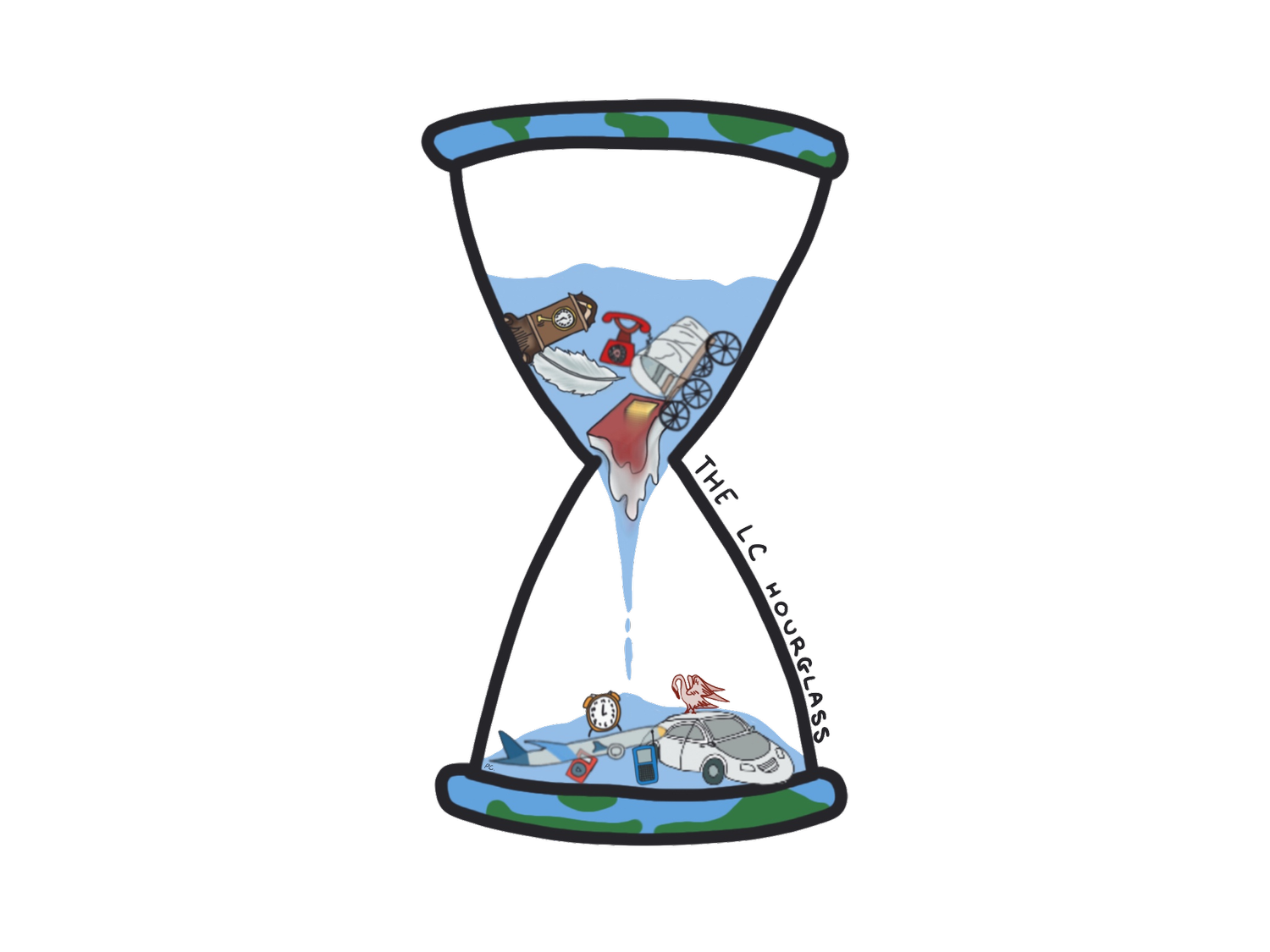A Kennedy Tragedy: How the Death of Two Brothers Brought Forth an American Midnight
By Luke Han ‘25
On June 5th, 1968, as the Democratic presidential hopeful Robert “Bobby” Kennedy lay dying from an assassin’s bullet in the Los Angeles Ambassador Hotel, one of his supporters screamed, “God! Not again!” The guttural cry resonated across the entire nation after Bobby was pronounced dead the next day; the murder of Robert, following his brother and former president John F. Kennedy, inflicted a national trauma - contributing to a seventies that would be filled with anger and upheaval. Throughout their lives, the Kennedys had become more than just two brothers - they had become the torches of American hope and idealism. With their snuffing out, darkness set, and a terrifying midnight descended upon America.
Brothers John and Robert Kennedy engaged with politics from very young ages as part of a family legacy in public service which stretched back to 1884. By 1960, JFK was running for president at only age 43. Robert was heavily involved with his brother’s successful presidential bid, serving as his campaign manager. Robert also became an essential advisor for JFK within his administration, being appointed Attorney General. Both were incredible public speakers and ardent liberals within the Democratic Party. The combination of the Kennedy brothers’ youth, progressivism, and charisma elevated the two men far beyond the political sphere into the realm of culture. JFK, in particular, would become the first president to extensively communicate with Americans via television, and through the novel medium, won many minds. Through their screens, many Americans saw something deeply needed - hope. As Kennedy settled into the presidency, he made speeches that tugged on the heartstrings of the American public while also pushing for long-needed change, most notably setting the foundations for the Civil Rights Act. Tragically, JFK would never see his agenda to fruition - in 1963, he was killed at only 46 years old.
After Kennedy’s death, the government politically remained as progressive as ever under the leadership of President Lyndon B. Johnson, who would end up successfully pushing through JFK’s Civil Rights Act in 1964. However, despite Johnson’s fight to continue Kennedy’s legislative agenda, the 55-year-old burly Texan, often seen as a ruthless politician by the public, was the polar opposite of his predecessor’s idealistic and youthful image. This was perhaps exemplified by the fact that RFK, who carried on his brother’s message and policies, and Johnson, had an incredibly tenuous relationship despite their shared political beliefs.
After sweeping the 1964 election, Johnson made the fateful decision to entangle America further in the Vietnam War. Domestic unrest exploded, with race riots, anti-war protests, and political extremism rolling over the entire country. As the 1968 presidential election approached, Johnson opted to drop out, leaving the road to the presidency open to RFK - who drew huge crowds across the nation, throngs of people desperate for the Kennedy magic that had once illuminated the country so brightly. But alas, Kennedy’s story ended before the primary’s end.
Instead of Kennedy, establishment politician and pro-Vietnam War candidate Hubert Humphrey achieved the Democratic nomination, drawing open protests outside the Chicago convention hall. The protests devolved into rioting, captured live on television, as young protestors chanted, “The whole world is watching!” police brutally beat and dragged them through the streets. Indeed, the whole world, and Americans at large, was watching America fall into midnight. The once idealistic hope of a better future was replaced with cynical division, clouding American society for nearly a decade. The Kennedys may have only been one family. Still, the degree to which their tragedy tore the very fabric of American society perfectly exemplifies how, at times, people become more than just themselves - they become standard-bearers. When they fall, the consequences are devastating for their families and the world as a whole.
Works Cited
Achenbach, Joel. “‘A Party That Had Lost Its Mind’: In 1968, Democrats Held One of History’s Most Disastrous Conventions.” Washington Post, August 24, 2018. https://www.washingtonpost.com/news/retropolis/wp/2018/08/24/a-party-that-had-lost-its-mind-in-1968-democrats-held-one-of-historys-most-disastrous-conventions/.
Caro, Robert A. Master of the Senate: The Years of Lyndon Johnson III. Knopf Doubleday Publishing Group, 2009.
Ching, Yee Lin. “Transformation and Turmoil: How Did 1960s America Become Unforgettable?” The Collector, April 28, 2023. https://www.thecollector.com/1960s-america-unforgettable/.
Clarke, Thurston. “The Last Good Campaign.” Vanity Fair, June 2008. https://web.archive.org/web/20141220171610/http://www.vanityfair.com/politics/features/2008/06/rfk_excerpt200806.
Cozzolino, Robert, Minneapolis Institute of Art, and Steven Zucker. “JFK and the Power of Media.” Smarthistory, January 6, 2019. https://smarthistory.org/seeing-america-2/winogrand-jfk/.
Germany, Kent. “Lyndon B. Johnson: Foreign Affairs .” Miller Center, July 18, 2017. https://millercenter.org/president/lbjohnson/foreign-affairs.
Maier, Thomas. The Kennedys: America’s Emerald Kings, a Five-Generation History of the Ultimate Irish-Catholic Family. New York: Basic Books , 2003.
Manchester, William. “Joseph Kennedy | Biography, Facts, & Family.” Encyclopedia Britannica, July 20, 1998. https://www.britannica.com/biography/Joseph-P-Kennedy.
Morris, John G. “Kennedy Claims Victory, and Then Shots Ring Out.” The New York Times, June 5, 1968, sec. Archives. https://www.nytimes.com/1968/06/05/archives/kennedy-claims-victory-and-then-shots-ring-out.html.
Mueller, Brian. “The Hidden 1970s: Histories of Radicalism.” Journal for the Study of Radicalism 7, no. 1 (January 1, 2013): 147–49. https://doi.org/10.14321/jstudradi.7.1.0147.
Neal, Arthur G. National Trauma and Collective Memory : Extraordinary Events in the American Experience. Armonk, N.Y.: M.E. Sharpe, 2005.
Pilger, John. “God! Not Again!” Daily Mirror, June 6, 1968.
Schleslinger, Arthur M. Robert Kennedy and His Times : 40th Anniversary Edition. Boston: Houghton Mifflin, 2018.
Thomas, Evan. Robert Kennedy : His Life. New York: Touchstone, 2007.
